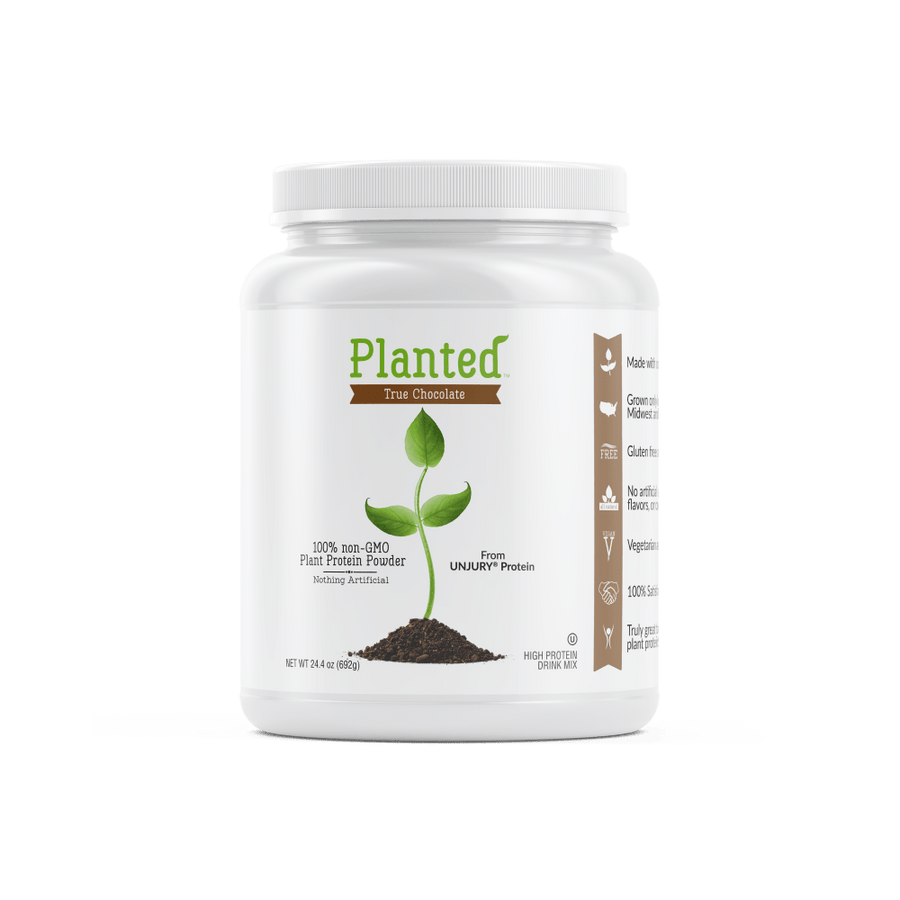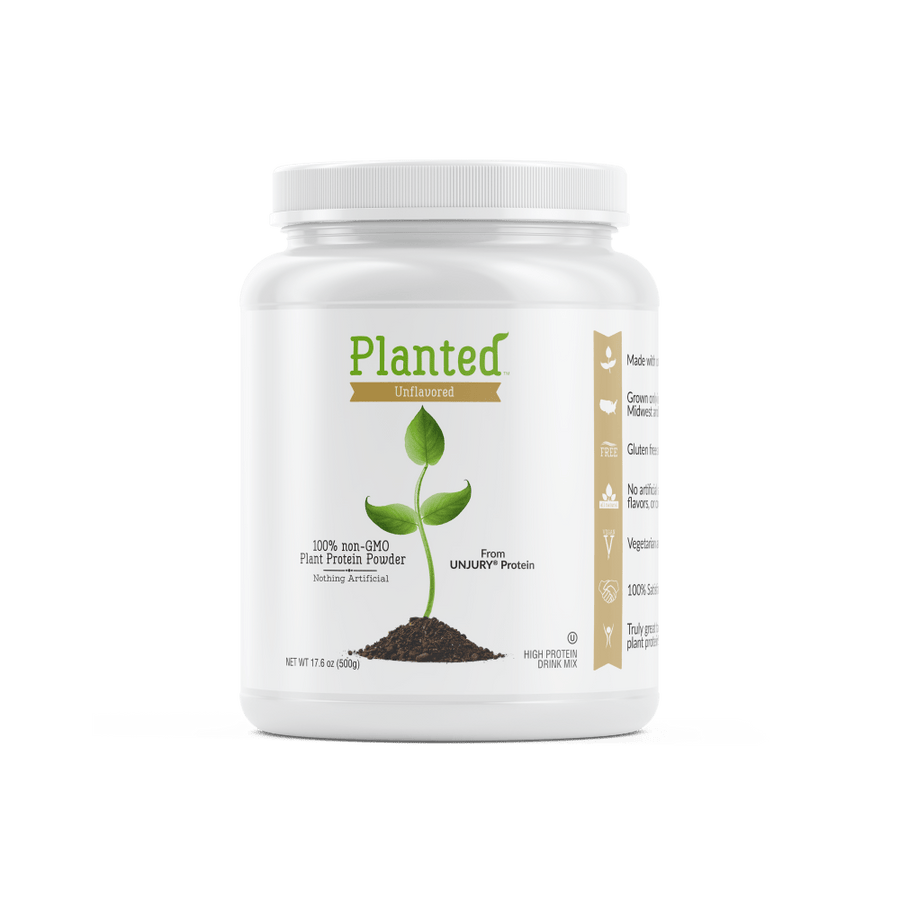Arginine and Glutamine for Wound Healing: Why Pea Protein Is Recommended
Arginine and glutamine are amino acids that contribute significantly to various physiological processes, making them indispensable for maintaining optimal health and wellness. Whether you're recovering from surgery or aiming to improve your general health, understanding the benefits of arginine and glutamine, and incorporating them into your diet, can be transformative.
Read on to discover more about their incredible health benefits and how to easily include them in your nutrition plan.
What Are Arginine and Glutamine?
Arginine and glutamine are important amino acids known for their roles in wound healing. Arginine helps boost immune function and collagen synthesis to support the repair of damaged body tissues. Glutamine supports cell production and tissue regeneration to help with the formation of new skin.1
Health Benefits of Arginine and Glutamine
Arginine and glutamine are two powerful amino acids that offer numerous benefits, significantly contributing to overall health and well-being. Here are some of their most well-known benefits.2,3
Arginine Benefits
- Immune function—boosts the immune system to fight infection and speed up the healing process
- Collagen synthesis—vital for collagen production, which is essential for tissue repair and wound healing
- Nitric oxide production—it acts as a precursor to nitric oxide, which relaxes blood vessels, improving circulation and oxygen delivery to tissues
- Exercise performance—improves blood flow, enhancing exercise performance
- Cardiovascular health—supports heart health by enhancing blood flow and improving endothelial function
- Muscle growth—supports muscle protein synthesis and growth
Glutamine Benefits
- Cellular proliferation—helps produce cells necessary to heal wounds
- Tissue regeneration—supports the renewal of tissues, crucial for the formation of new skin
- Gut health—maintains the lining of your gut, which is essential for overall immune function and nutrient absorption
The Stages of Wound Healing
The wound healing process is made up of four stages, each requiring different nutrients and proteins with arginine and glutamine for support:4
- Hemostasis: This initial stage involves blood clotting to prevent excessive bleeding.
- Inflammation: The body's immune response kicks in to prevent infection and remove debris.
- Proliferation: New tissue and blood vessels form, and collagen is produced to close the wound.
- Remodeling: The wound matures as new tissue gains strength and flexibility.
Providing the right nutrition from whole foods and nutritional supplements can naturally support the wound healing process.
Which Foods Are High in Arginine?
Foods rich in arginine can significantly aid in wound healing by providing the necessary building blocks for collagen synthesis and tissue repair. Some good sources of arginine include:
- Poultry (chicken, turkey)
- Fish (salmon, tuna)
- Nuts (almonds, walnuts)
- Seeds (pumpkin seeds, sesame seeds)
- Whole grains (quinoa, oats, wild rice)
Which Foods Are High in Glutamine?
Foods high in glutamine also support wound healing by promoting cell production and tissue regeneration. Some good sources of glutamine include:
- Meat (beef, pork)
- Seafood (shrimp, crab)
- Dairy products (milk, yogurt)
- Beans and legumes (soybeans, lentils)
Why Choose Pea Protein Supplements?
High-quality pea protein supplements, like Unjury’s Planted Protein, are an excellent source of arginine and glutamine. Pea protein is a plant-based, easily digestible protein that provides a balanced amino acid profile, making it a fantastic choice for those looking to support wound healing naturally.5*
Here’s why Unjury’s Pea Protein Isolate stands out:
- Rich in arginine and glutamine: It provides the essential amino acids your body needs to support immune function, collagen synthesis, and tissue regeneration.*
- Plant-based: Our pea protein is suitable for vegetarians and vegans and free from common allergens like dairy and gluten.
- Gentle on the stomach: There are no artificial sweeteners or unnecessary additives, so it’s easy to digest and incorporate into specialized diets.
- Tastes great: Unjury’s plant-based proteins are sourced and processed in North America, and they are extremely high-quality, so you won’t taste the “earthiness” that many other plant-based proteins are known for.
Conclusion
Incorporating arginine and glutamine into your diet is essential for optimal wound healing.
High-quality pea protein supplements offer a convenient and effective way to ensure you’re getting enough of these critical amino acids. By supporting immune function, collagen synthesis, and tissue regeneration, pea protein can play a vital role in accelerating the healing process and improving overall health.*
Whether you’re recovering from surgery or looking to enhance your general well-being, consider adding pea protein to your nutrition plan.
Shop Now
References
1. Arribas-López E et al. Nutrients. 2021;13(8):2498.
2. McRae MP. J Chiropr Med. 2016;15(3):184–189.
3. Cruzat V et al. Nutrients. 2018;10(11):1564.
4. Guo S et al. J Dent Res. 2010;89(3):219–229.
5. Shanthakumar P et al. Molecules. 2022;27(16):5354.
*These statements have not been evaluated by the Food and Drug Administration (FDA). These products are not intended to diagnose, treat, cure, or prevent any disease.
This blog is for information and education purposes only. This information is not intended to substitute professional medical advice, diagnosis, or treatment. Please consult with your bariatric surgeon or another qualified healthcare provider with any questions in regard to a medical condition. A qualified healthcare professional can best assist you in deciding whether a dietary supplement is suitable based on your individual needs.












